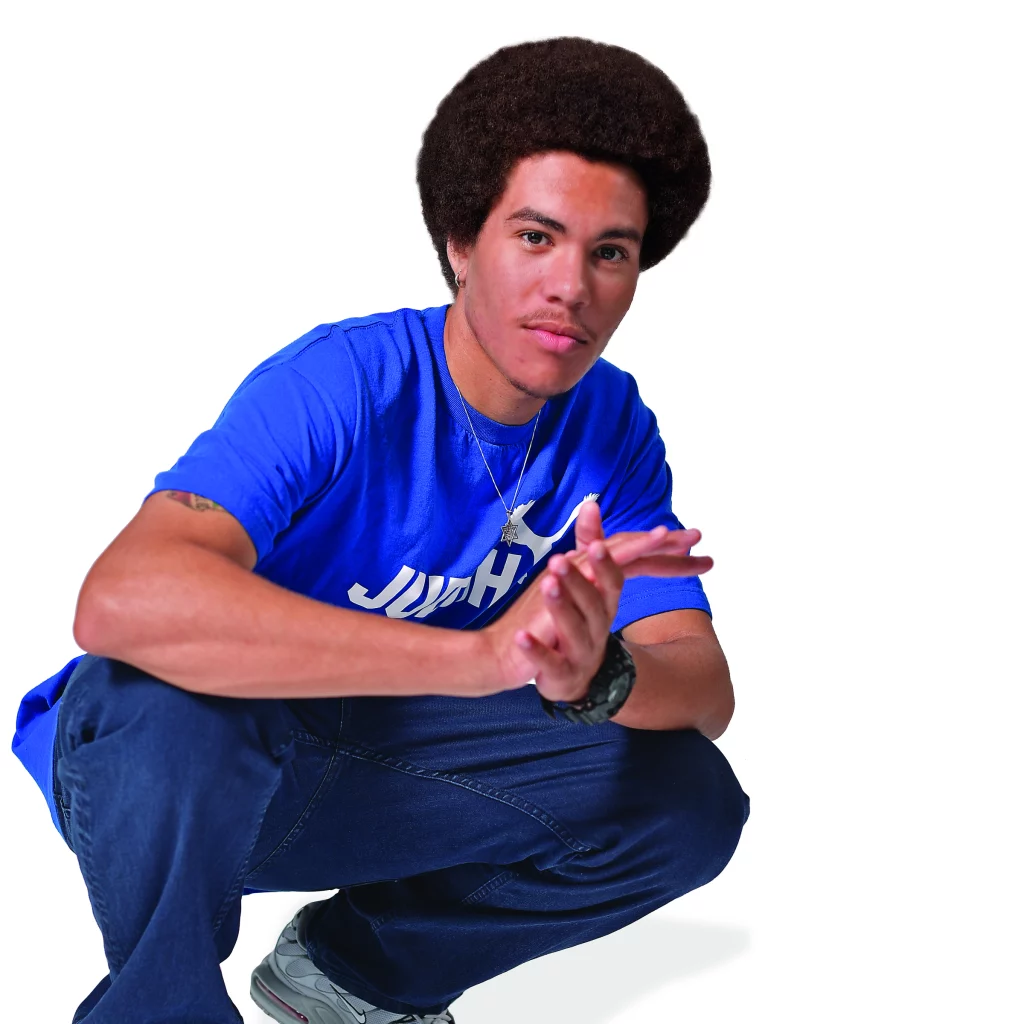Duly noted

For Noah Shufutinsky, Hillel isn’t just the center of Jewish life on campus, it’s his home away from home. So it’s not surprising that’s where the incoming junior first turned when he wanted feedback about his musical alter ego.
When not pursuing a Jewish studies major at George Washington University, Shufutinsky raps as West Side Gravy, whose black Jewish identity is central to his music. Students and staff at GW Hillel have been supportive of the endeavor; Shufutinsky even performed some of his songs at a GW Hillel-sponsored holiday party last December. It was an auspicious beginning.
“Seeing how everyone reacted and seeing the response that it got in the same community as me was really important to my development before I ever even recorded the song,” Shufutinsky said. “It was an amazing experience, and I’m really happy I was able to get that opportunity.”
This year, bolstered by the success with his peers, he went to Jerusalem and shot a video for his song “Diaspora,” in which he raps in Hebrew in defense of the Jewish state.
Lucy Greenbaum of Washington University in St. Louis isn’t a rapper like Shufutinsky, but she pursued her musical passion with the help of Hillel, too. Before she graduated in May with a major in psychology and global health, she served as the music director of Staam, a WashU Hillel-affiliated Jewish a cappella group that performed at campus events like Shabbat dinners. An aspiring cantor, she also led Shabbat services and Havdalah at WashU Hillel.
Greenbaum said Hillel helped her express Judaism through music.
“It was a really great opportunity to practice my leadership skills and also meet other students who were also Reform Jews, which was hard otherwise on campus,” Greenbaum said. “I’ve always felt that music is a way to connect to people, mostly because it’s a vulnerable thing to do, especially in a group setting. When you sing in a community, you’re being vulnerable with people, so that helps build relationships, especially in Jewish settings.”
This was especially true for the musical prayer group at University of Maryland Hillel. In December 2018, a group of seven students from UMD Hillel got the chance to partake in the Singing Communities Intensive at Hadar’s Rising Song Institute in New York. The program aims to cultivate Jewish spiritual life through music and song.
“Music is a major way that people connect to Judaism,” said Annie Prusky, the Springboard Ezra Jewish Education Specialist at Maryland Hillel. “So we wanted something which was both an immersive growing experience and would also provide a leadership pipeline to those who were interested. The goal of Hillel is to help Jewish students connect to their Jewish identity. So however we can facilitate that growth, that’s what we want to be doing.”
This year, the Hadar program focused on the art of nigun, Hebrew for “melody,” a musical prayer that emerged from Chasidic Judaism in the 1700s. Participants form a circle and sing a wordless melody. Singing in Hebrew can be intimidating for some, and English can be alienating for others, Prusky said. So a nigun circle is a way to just focus on the music and communal connection.
The members of Maryland Hillel’s singing group, some of more than 200 participants from across the country, participated in the multiday workshop.
“I have been privileged to have had a lot of great experiences in my life, but I can’t really think of any that have been as amazing as this one,” said UMD student Dirk Holzman, Class of 2020. “I gained an understanding of myself, my spirituality, music and Judaism that I know will shape who I am for the rest of my life.”
The students were even inspired to bring the idea of the nigun circle back to their campus.
“I know I’ll be humming some of those tunes,” said UMD’s Deborah Brown, Class of 2022, “for a long time.”
Story by Eric Schucht.